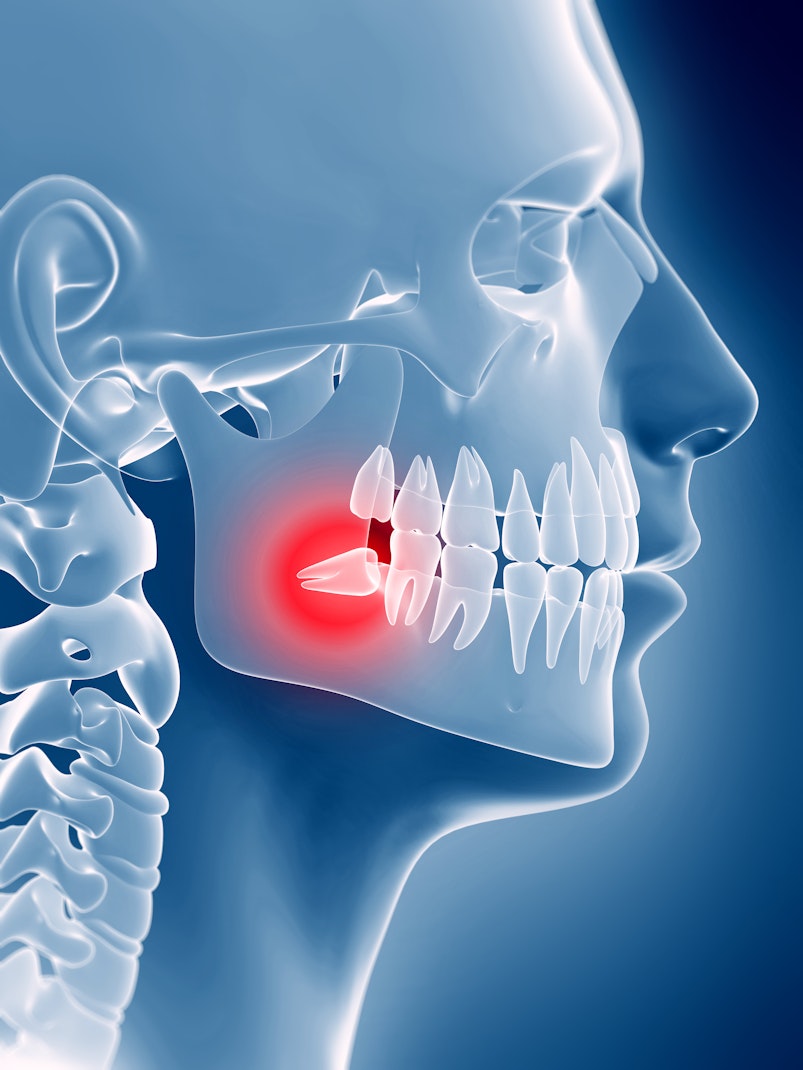Wisdom Teeth
Wisdom teeth usually appear at the back of the mouth during late teens or early twenties. Often there is no room for them to come through the gum and they fail to emerge properly. A wisdom tooth can erupt partly through the gum, or remain trapped as an ‘impacted' wisdom tooth. Seek advice from a dentist to see if you need to have your wisdom teeth removed.
Key points to remeber about wisdom teeth;
- wisdom teeth can be very difficult to clean, and are prone to tooth decay, gum disease, and recurring infections.
- cysts and tumours can develop in tissues around impacted wisdom teeth
- if your wisdom teeth are unable to erupt, they may cause pressure and damage or crowd the neighbouring teeth
- wisdom tooth extractions are easier when you are younger.
Straightforward removal of wisdom teeth may be done in your own dentist's surgery. If your problem is more complex, your dentist may decide to refer you to an oral surgeon.
Surgical removal of wisdom teeth can cause more discomfort than routine extractions. You likely to experience some swelling, minor bleeding and difficulty in fully opening your mouth. These symptoms are temporary, and in most cases your mouth will be feeling normal a week after your surgery.
You may also experience a change of sensation or numbness of your lip and chin and your dentist will discuss with you the risk/benefit ratio of your particular surgery.


